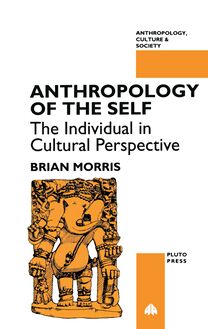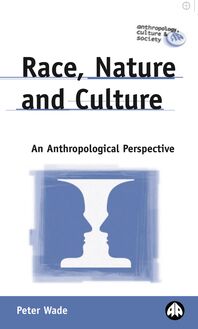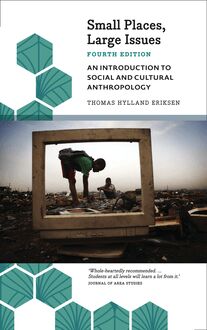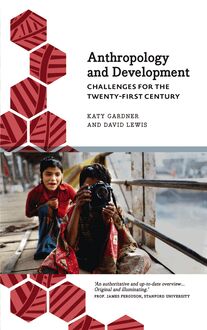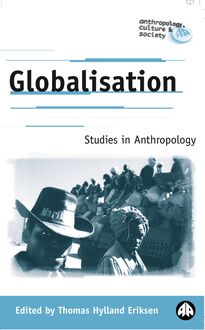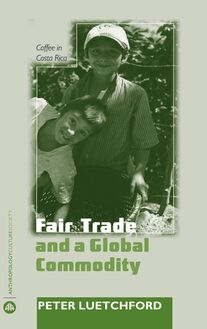-
 Univers
Univers
-
 Ebooks
Ebooks
-
 Livres audio
Livres audio
-
 Presse
Presse
-
 Podcasts
Podcasts
-
 BD
BD
-
 Documents
Documents
-
- Cours
- Révisions
- Ressources pédagogiques
- Sciences de l’éducation
- Manuels scolaires
- Langues
- Travaux de classe
- Annales de BEP
- Etudes supérieures
- Maternelle et primaire
- Fiches de lecture
- Orientation scolaire
- Méthodologie
- Corrigés de devoir
- Annales d’examens et concours
- Annales du bac
- Annales du brevet
- Rapports de stage
La lecture à portée de main
Vous pourrez modifier la taille du texte de cet ouvrage
Découvre YouScribe en t'inscrivant gratuitement
Je m'inscrisDécouvre YouScribe en t'inscrivant gratuitement
Je m'inscrisEn savoir plus
Vous pourrez modifier la taille du texte de cet ouvrage
En savoir plus

Description
As part of a general discussion on civilising projects and the role of state institutions, the authors focus on Denmark, a country characterised by the extent of time children use in public institutions from an early age. They look at the extraordinary amount of attention and effort put into the process of upbringing by the state, as well as the widespread co-operation in this by parents across the social spectrum.
Taking as its point of departure the sociologist Norbert Elias’ concept of civilising, Children of the Welfare State explores the ideals of civilised conduct expressed through institutional upbringing and examine how children of different age, gender, ethnicity and social backgrounds experience and react to these norms and efforts. The analysis demonstrates that welfare state institutions, though characterised by a strong egalitarian ideal, create distinctions between social groups, teach children about moral hierarchies in society and prompts them to identify as more or less civilised citizens of the state.
Series Preface
Acknowledgements
Introduction
1. On Civilising: A Perspective on Childrearing, Conduct and Distinctions
2. Society’s Children: Institutionalisation and Changing Perceptions of Children and Upbringing
3. Civilising the Youngest: An Ambiguous Endeavour
4. The Not-Yet-Civilised: Negotiating the Kindergarten’s Civilising Project - Karen Fog Olwig
5. Social Children and Good Classes: Moulding Civilised Communities during the First Year of School
6. The Impossible Bilingual Boys: Civilising Efforts and Oppositional Forms in a Multi-Ethnic Class
7. The Decent Citizens: Lessons on Moral Superiority and the Immorality of Wealth in a Class of Privileged Youth
8. The Civilised Family Life: Childrearing in Affluent Families - Dil Bach
9. Civilising Institutions: Cultural Norms and Social Consequences
Notes
References
Index
Sujets
Social Science
EDUCATION
Sociologie, société et politique
Educación preescolar
Dinamarca
Sociology
Philosophy
Child protection
Day care
State school
Nursery school
Welfare State
Kindergarten
General officer
School
Developmental psychology
Anthropology
Children
Curriculum
General
Denmark
École
État-providence
École maternelle
Informations
| Publié par | Pluto Press |
| Date de parution | 20 décembre 2016 |
| Nombre de lectures | 0 |
| EAN13 | 9781786800176 |
| Langue | English |
| Poids de l'ouvrage | 2 Mo |
Informations légales : prix de location à la page 0,1850€. Cette information est donnée uniquement à titre indicatif conformément à la législation en vigueur.
Extrait
Children of the Welfare State
Anthropology, Culture and Society
Series Editors: Professor Vered Amit, Concordia University Doctor Jamie Cross, University of Edinburgh and Professor Christina Garsten, Stockholm University
Recent titles:
The Limits to Citizen Power: Participatory Democracy and the Entanglements of the State V ICTOR A LBERT
Becoming Arab in London: Performativity and the Undoing of Identity R AMY M. K. A LY
Community, Cosmopolitanism and the Problem of Human Commonality V ERED A MIT AND N IGEL R APPORT
Anthropologies of Value E DITED BY L UIS F ERNANDO A NGOSTO -F ERRANDEZ AND G EIR H ENNING P RESTERUDSTUEN
In Foreign Fields: The Politics and Experiences of Transnational Sport Migration T HOMAS F. C ARTER
Dream Zones: Anticipating Capitalism and Development in India J AMIE C ROSS
A History of Anthropology Second Edition T HOMAS H YLLAND E RIKSEN AND F INN S IVERT N IELSEN
Ethnicity and Nationalism: Anthropological Perspectives Third Edition T HOMAS H YLLAND E RIKSEN
Fredrik Barth: An Intellectual Biography T HOMAS H YLLAND E RIKSEN
Small Places, Large Issues: An Introduction to Social and Cultural Anthropology Fourth Edition Thomas Hylland Eriksen
At the Heart of the State: The Moral World of Institutions D IDIER F ASSIN ET AL .
Discordant Development: Global Capitalism and the Struggle for Connection in Bangladesh K ATY G ARDNER
Anthropology and Development: Challenges for the Twenty-first Century K ATY G ARDNER AND D AVID L EWIS
Organisational Anthropology: Doing Ethnography in and Among Complex Organisations E DITED BY C HRISTINA G ARSTEN AND A NETTE N YQVIST
Border Watch: Cultures of Immigration , Detention and Control A LEXANDRA H ALL
Anthropology’s World: Life in a Twenty-First Century Discipline U LF H ANNERZ
Humans and Other Animals: Cross-cultural Perspectives on Human-Animal Interactions S AMANTHA H URN
Flip-Flop: A Journey Through Globalisation’s Backroads C AROLINE K NOWLES
Faith and Charity: Religion and Humanitarian Assistance in West Africa E DITED BY M ARIE N ATHALIE L EBLANC AND L OUIS A UDET G OSSELIN
The Anthropology of Security: Perspectives from the Frontline of Policing, Counter-Terrorism and Border Control E DITED BY M ARK M AGUIRE, C ATARINA F ROIS AND N ILS Z URAWSKI
The Gloss of Harmony: The Politics of Policy Making in Multilateral Organisations E DITED BY B IRGIT M ÜLLER
Contesting Publics: Feminism, Activism , Ethnography L YNNE P HILLIPS AND S ALLY C OLE
Food For Change: The Politics and Values of Social Movements J EFF P RATT AND P ETER L UETCHFORD
Base Encounters: The US Armed Forces in South Korea E LISABETH S CHOBER
Checkpoint, Temple, Church and Mosque: A Collaborative Ethnography of War and Peace J ONATHAN S PENCER, J ONATHAN G OODHAND, S HAHUL H ASBULLAH, B ART K LEM , B ENEDIKT K ORF AND K ALINGA T UDOR S ILVA
Race and Ethnicity in Latin America Second Edition P ETER W ADE
The Capability of Places: Methods for Modelling Community Response to Intrusion and Change S ANDRA W ALLMAN
The Making of an African Working Class: Politics, Law and Cultural Protest in the Manual Workers’ Union of Botswana P NINA W ERBNER
Children of the Welfare State
Civilising Practices in Schools, Childcare and Families
Laura Gilliam and Eva Gulløv
With contributions from Karen Fog Olwig and Dil Bach
This book is adapted from Civiliserende Institutioner: Om idealer og distinktioner i opdragelse published by Aarhus University Press, 2012.
First published 2017 by Pluto Press 345 Archway Road, London N6 5AA
www.plutobooks.com
Copyright © Laura Gilliam and Eva Gulløv 2017
The right of Laura Gilliam, Eva Gulløv, Karen Fog Olwig and Dil Bach to be identified as the authors of this work has been asserted by them in accordance with the Copyright, Designs and Patents Act 1988.
British Library Cataloguing in Publication Data A catalogue record for this book is available from the British Library
ISBN 978 0 7453 3609 1 Hardback ISBN 978 0 7453 3604 6 Paperback ISBN 978 1 7868 0000 8 PDF eBook ISBN 978 1 7868 0018 3 Kindle eBook ISBN 978 1 7868 0017 6 EPUB eBook
This book is printed on paper suitable for recycling and made from fully managed and sustained forest sources. Logging, pulping and manufacturing processes are expected to conform to the environmental standards of the country of origin.
Typeset by Stanford DTP Services, Northampton, England
Simultaneously printed in the European Union and United States of America
Contents
Series Preface
Acknowledgements
Introduction
Laura Gilliam and Eva Gulløv
1 On Civilising: A Perspective on Childrearing, Conduct and Distinctions
Laura Gilliam and Eva Gulløv
2 Society’s Children: Institutionalisation and Changing Perceptions of Children and Upbringing
Laura Gilliam and Eva Gulløv
3 Civilising the Youngest: An Ambiguous Endeavour
Eva Gulløv
4 The Not-Yet-Civilised: Negotiating the Kindergarten’s Civilising Project
Karen Fog Olwig
5 Social Children and Good Classes: Moulding Civilised Communities during the First Year of School
Laura Gilliam
6 The Impossible Bilingual Boys: Civilising Efforts and Oppositional Forms in a Multi-ethnic Class
Laura Gilliam
7 The Decent Citizens: Lessons on Moral Superiority and the Immorality of Wealth in a Class of Privileged Youth
Laura Gilliam
8 The Civilised Family Life: Childrearing in Affluent Families
Dil Bach
9 Civilising Institutions: Cultural Norms and Social Consequences
Laura Gilliam and Eva Gulløv
Notes
References
Index
Series Preface
Anthropology is a discipline based upon in-depth ethnographic works that deal with wider theoretical issues in the context of particular, local conditions – to paraphrase an important volume from the series: large issues explored in small places . This series has a particular mission: to publish work that moves away from an old-style descriptive ethnography that is strongly area-studies oriented, and offer genuine theoretical arguments that are of interest to a much wider readership, but which are nevertheless located and grounded in solid ethnographic research. If anthropology is to argue itself a place in the contemporary intellectual world, then it must surely be through such research.
We start from the question: ‘What can this ethnographic material tell us about the bigger theoretical issues that concern the social sciences?’ rather than ‘What can these theoretical ideas tell us about the ethnographic context?’ Put this way round, such work becomes about large issues, set in a (relatively) small place, rather than detailed description of a small place for its own sake. As Clifford Geertz once said, ‘Anthropologists don’t study villages; they study in villages.’
By place, we mean not only geographical locale, but also other types of ‘place’ – within political, economic, religious or other social systems. We therefore publish work based on ethnography within political and religious movements, occupational or class groups, among youth, development agencies, and nationalist movements; but also work that is more thematically based – on kinship, landscape, the state, violence, corruption, the self. The series publishes four kinds of volume: ethnographic monographs; comparative texts; edited collections; and shorter, polemical essays.
We publish work from all traditions of anthropology, and all parts of the world, which combines theoretical debate with empirical evidence to demonstrate anthropology’s unique position in contemporary scholarship and the contemporary world.
Professor Vered Amit Dr Jamie Cross Professor Christina Garsten
Acknowledgements
This book is the outcome of the research project ‘Civilizing Institutions in a Modern Welfare State’, financed by the Danish Council for Independent Research, Social Sciences. The analyses were first published in Danish in 2012 by Aarhus University Press and translated into Norwegian in 2015 by Fagbokforlaget. The present text is an updated and reworked version of the Danish book directed towards an international audience.
The analyses that we present in this book are based on ethnographic fieldwork in families, day-care institutions and schools in Denmark where we have explored ideas and practices concerning children, their upbringing and proper behaviour. We are deeply indebted to the many children and parents, pedagogues and assistants, teachers and principals who have allowed us to gain insight into their everyday lives in the various institutional settings. We are very grateful for their patience and cooperation and for allowing us to interview them and observe their everyday practices and conduct the sometimes peculiar practice of anthropological fieldwork.
During the analytical phases, we have profited immensely from informal as well as organised discussions with close colleagues on topics related to children and education in contemporary society. In addition to the inspiring conversations we have had regularly with our close colleagues within the fields of educational anthropology and child research at the Department of Educational Anthropology at Aarhus University, University of Copenhagen and Roskilde University, we have benefited a lot from comments given at national and international seminars. In this regard, we would like to thank Allison James, Richard Jenkins, Bradley Levinson, Robert van Krieken, Noel Dyck, John Gillis, Susan Brownell, Liisa Malkki, Anne-Trine Kjørholt, Jan Kampmann, Morten Thing, Paddy Dolan and Norman Gabriel for their thoughtful comments and reflections at various stages in the process. Special thanks should be given to our two husbands and fellow anthropologists, Henrik Vigh and John Gulløv, who throughout the process have supported and inspired the work with thoughtful comments and ideas.
In the process of adapting and revising the Danish text into the present English version, we have also been helped by several skilled translators. Initially, al
-
 Univers
Univers
-
 Ebooks
Ebooks
-
 Livres audio
Livres audio
-
 Presse
Presse
-
 Podcasts
Podcasts
-
 BD
BD
-
 Documents
Documents
-
Jeunesse
-
Littérature
-
Ressources professionnelles
-
Santé et bien-être
-
Savoirs
-
Education
-
Loisirs et hobbies
-
Art, musique et cinéma
-
Actualité et débat de société
-
Jeunesse
-
Littérature
-
Ressources professionnelles
-
Santé et bien-être
-
Savoirs
-
Education
-
Loisirs et hobbies
-
Art, musique et cinéma
-
Actualité et débat de société
-
Actualités
-
Lifestyle
-
Presse jeunesse
-
Presse professionnelle
-
Pratique
-
Presse sportive
-
Presse internationale
-
Culture & Médias
-
Action et Aventures
-
Science-fiction et Fantasy
-
Société
-
Jeunesse
-
Littérature
-
Ressources professionnelles
-
Santé et bien-être
-
Savoirs
-
Education
-
Loisirs et hobbies
-
Art, musique et cinéma
-
Actualité et débat de société
- Cours
- Révisions
- Ressources pédagogiques
- Sciences de l’éducation
- Manuels scolaires
- Langues
- Travaux de classe
- Annales de BEP
- Etudes supérieures
- Maternelle et primaire
- Fiches de lecture
- Orientation scolaire
- Méthodologie
- Corrigés de devoir
- Annales d’examens et concours
- Annales du bac
- Annales du brevet
- Rapports de stage
